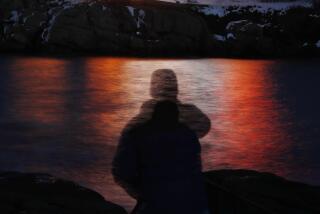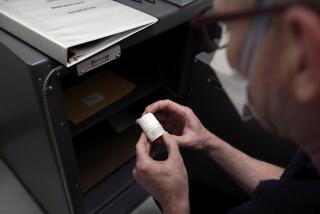Alternative Medicine Report Criticized
- Share via
After two years and $2 million, the White House Commission on Alternative and Complementary Medicine Policy recently released its report, and it’s probably no surprise it has stirred up as much dust as alternative medicine itself has.
Dr. Stephen Barrett, who runs the “Quackwatch” Web site and has been a vitriolic critic of the commission, called the report a “complete scam” and “intellectually dishonest.” Asked what should be done with it, he replied: “It should be burned.”
Two of the 20 commissioners filed a separate statement to Health and Human Services Secretary Tommy Thompson, criticizing the underlying “advocacy tone” of the report, which is based, they said, on a presumption that “most CAM [complementary and alternative medicine] interventions will be proven to be safe and effective.”
But in a letter published recently in the Washington Post, the head of the commission, Dr. James Gordon, a psychiatrist and director of the Center for Mind-Body Medicine in Washington, D.C., defended the report, saying it reflected “emphasis on the need to scientifically investigate complementary and alternative therapies to find out if they are safe and effective and cost-effective.”
Aside from the controversy, it’s unclear what impact the report will have--although Gordon said he hopes it will lead to congressional hearings. In March 2000 then-President Bill Clinton mandated the commission, composed of mainstream doctors, nurses and alternative practitioners, to develop recommendations to help lawmakers and administrators make policy that “maximizes the benefits” of complementary and alternative medicine. But that was in another time.
“Circumstances are very different now. We were at peace then, and we had a surplus budget, and there was no such thing as bioterrorism,” said Dr. Joseph Fins, director of ethics at New York Presbyterian Hospital in Manhattan and one of the commissioners who sent a letter to Thompson.
For 18 months the commission held town meetings around the country that included the testimony of more than 700 groups or individuals, and it read more than 1,000 written submissions.
The result is an inch-thick document that Gordon calls “a road map for taking the next steps to determine ... what we know and what we don’t know about the benefits and hazards” of complementary and alternative medicine. The recommendations call for:
* Allocating more funds for research.
* Creating an office within HHS to coordinate complementary and alternative medicine research and activities.
* Educating conventional health professionals in complementary medicine and educating alternative practitioners in conventional health care.
* Making accurate information about complementary and alternative medicine available and ensuring that products are safe.
* Improving access to alternative practitioners and ensuring they are accountable to the public.
* Broadening insurance coverage for those practices shown to be safe and effective.
* Looking at complementary medicine in promoting wellness.
But the dissenters said, despite last-minute changes, the report still reflects a pro-complementary medicine mind-set that isn’t based on much science.
“Part of the problem is that it was a commission of advocates, myself included,” said Dr. Tieraona Low Dog of Corrales, N.M., who along with Fins sent the dissenting letter. As a result, the commission wouldn’t take a stand about which alternative therapies have a growing body of science behind them and those that were unproven, possibly unsafe or downright fraudulent, said Low Dog, an expert in herbs.
“To not take a stand on some of these things that are quackery is just nonsense,” she said. Fins agreed. “We should try to identify those things that are promising, and the key element is objectivity and science, not partisanship and advocacy,” he said.
*
Ridgely Ochs is a reporter for Newsday, a Tribune company.
More to Read
Sign up for Essential California
The most important California stories and recommendations in your inbox every morning.
You may occasionally receive promotional content from the Los Angeles Times.










